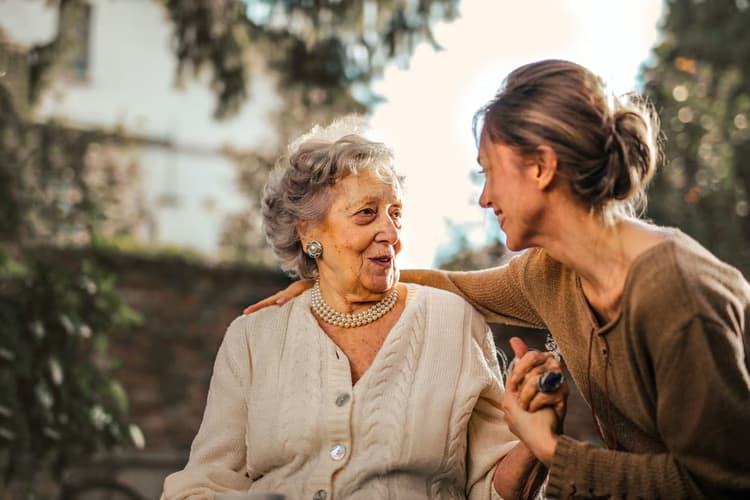Grief
The Role of Death Doulas
A death doula is a trained nonmedical professional who provides emotional, physical, and educational support for someone nearing death. They can be considered a mentor for the final chapter of life and are typically brought in by the dying individual’s family.

The end of life is something few talk about, yet is one of the most universal truths we all live with. We will die, whether we like it or not. Since few people talk about this natural phenomenon of life, it can leave families filled with unresolved questions and a lack of understanding for what to expect in the last chapter of life… death. During the tough time of losing life, a death doula can help turn the hard situation into a much softer and more comfortable experience for everyone involved.
What is a Death Doula
A death doula (also sometimes called end-of-life doula, or death midwife) is a trained nonmedical professional who provides emotional, physical, and educational support for someone nearing death. They can be considered a mentor for the final chapter of life and are typically brought in by the dying individual’s family.
While some doulas may be on call, others may do overnight care or regular scheduled visits. The death doula accompanies and provides comfort for the dying person, and makes the dying process more pleasant for everyone involved.
Death doulas foster relationships with individuals beyond their diagnosis and strive to minimize their loneliness and isolation through death, a role that is often too difficult to be played by close family members and friends.
Practical Support
Doulas can focus on pre-planning and helping individuals work through their advanced directives and end of life planning, taking into consideration any fears or blocks they may have around death and dying. This can include working with families to facilitate conversations with loved ones about end of life planning. They can also support families after a death in navigating logistics like organizing a house to be ready for sale, procuring death certificates, closing social media accounts, or navigating insurance.
Spiritual & Emotional Support

For centuries, death mainly took place in the home and in the presence of family. It was personal and incorporated sacred rituals and traditions. There is now a push to return to these ways and create a more personal and comfortable relationship with death. Death doulas can work with the actively dying. Doulas can offer respite to caregivers (similar to hospice) and sit bedside keeping vigil with the family. They can also help the family post-death by creating home funerals, performing death rituals like bathing the body, or creating legacy projects to honor the dying/deceased. Death doulas can also help families cope with grief and loss when someone is dying or has passed.
Educational Support
Death doulas can provide information on green burial alternatives, educate on state specific rules around advanced directives, and provide referrals and resources to those who can help make the process more supportive. Educational death workers may also work within lower income or marginalized communities to advocate and provide assistance for those who do not have access to supportive or affordable end-of-life care.
Death and loss can be an overwhelming and painful experience. The good news is you don’t have to go it alone. Memoria works hand in hand with Death Doulas who can be a trusted resource to any family to help support and navigate in challenging times. Lean on us. We’re here to ease the journey.


